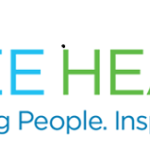By Nancy G. Brinker
I will never forget sitting with my sister, Susan G. Komen, in a hospital waiting room during her treatment for breast cancer. Seeing the other women waiting, in some cases hoping in vain for care they could not afford, Suzy turned to me and said, “Where a woman lives shouldn’t determine whether she lives.”
Even in an affluent place like Palm Beach County, underserved women face challenges accessing health care. At the Promise Fund of Florida, we have been working to ensure all uninsured and underinsured women access regular screenings for breast and cervical cancers. This summer, we were thrilled to announce that more women who are diagnosed with cancer can have life-saving treatment close to home.

In a first-of-its-kind partnership in Palm Beach County, Good Samaritan Medical Center, part of the Palm Beach Health Network, pledged to sponsor the treatment and care for local women diagnosed with breast or cervical cancer after screenings made possible by the Promise Fund.
This is a real and meaningful victory. Recently, a Promise Fund patient had to make 25 road trips to Tampa and back for radiation treatments with one of our patient navigators, because that was the location of the only hospital in our region that would fund her care.
Now, we look forward to developing similar partnerships with additional medical care partners here in South Florida. We need hospitals, health care systems, physicians, and anyone with a heart for health equity to offer these deserving women much-needed support.
Currently, uninsured women who annually earn more than $13,590 and less than $27,180 are not eligible for specialty benefits through the Health Care District of Palm Beach County. Palm Beach County has some of the worst health disparities for women, especially women with cancer.
Women without adequate insurance or a medical home are left to seek help as best they can. This means delays in treatment and — at worst — no treatment at all. Many women drop out after being diagnosed: They are walking around with the cancer advancing, unable to get the help they need.
As they suffer and their cancer spreads, the cost to treat them rises. For a patient with Stage 1 breast cancer, the average treatment costs $43,530; for a patient at Stage 4, that amount jumps to $223,568. The need for chemotherapy also impacts the expense of care. For breast cancer patients not receiving chemotherapy, the overall healthcare cost within two years of diagnosis averages $80,870; for those who receive chemotherapy, that figure rises to $200,045.
But the survival rate is what really matters. For a patient diagnosed at Stage 1, the 5-year survival rate is 99 percent. When the diagnosis shows cancer at Stage 4, the survival rate is 22 percent. By screening women regularly, we save money, but much more importantly we save lives.
The Promise Fund is helping to navigate the complexities of the health care system for women who need it, ensuring health equality and better outcomes. Diseases that are 99 and 95 percent curable shouldn’t be resulting in so many deaths.
The Promise Fund won’t rest until no woman dies from late-stage breast or cervical cancer. In the past year, Promise Fund supported more than 18,000 uninsured and underinsured women in navigating the complexities of the healthcare system. We look to double our impact each year, with the goal of reaching all 80,000 uninsured women in our community by 2024. With additional local partnerships, we will not only save lives, but we will also craft a model of care equity that can be replicated around the nation.
Learn more about our mission at www.promisefundofflorida.org.
Nancy G. Brinker is co-founder of the Promise Fund of Florida.


























